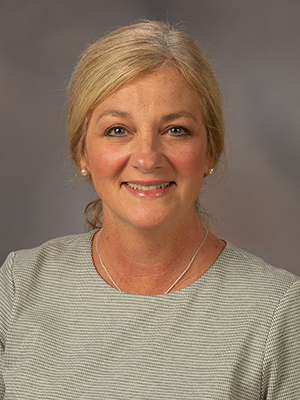UMMC researchers to study links between preeclampsia, later effects for moms and babies

The first long-term study in Mississippi of potential links between preeclampsia in pregnant women and serious health issues for their babies later in life begins in earnest in 2026.
Researchers at the University of Mississippi Medical Center were awarded a $7.4 million Specialized Centers of Research Excellence grant from the National Institutes of Health’s Office of Research on Women’s Health to study the condition in women in metro Jackson and, eventually, across the state.

“The grant will study how inflammatory factors in women who have preeclampsia lead to hypertension for the mothers during pregnancy and then contribute to the long-term cardiovascular and neurovascular dysfunction these women seem to have earlier in life compared to those that had uncomplicated pregnancy,” said Dr. Babette LaMarca, chair of pharmacology and toxicology at UMMC and director of the study. “The study will compare those pregnancies with women who have normal pregnancies.”
Preeclampsia refers to a dangerous spike in blood pressure during pregnancy. It strikes 1 in 25 pregnancies worldwide and is a leading cause in morbidity in mothers in Mississippi.
The study establishes the Mississippi Preeclampsia Collaborative Center to formalize the researchers work, which LaMarca points out will use similar studies abroad as a guide for looking at Mississippi moms.
“We know from studies done in other countries that women who have preeclampsia have children who in some cases develop cardiovascular disease or neurovascular difficulties as young as their 30s, unlike people born after a normal pregnancy that might not develop those conditions until their 50s,” LaMarca said. “And female children of preeclamptic mothers are more likely to develop preeclampsia when they become pregnant later in life.
“Here in Mississippi, we don’t have those chronic studies to present that data,” she said. “It’s why we created the collaborative center to work with not only UMMC clinics across the state but our other hospitals where these women may deliver or see doctors for their developing chronic diseases.”
The research will look at women during pregnancies, postpartum and on into second pregnancies while measuring for specific inflammatory factors. One of them is a certain antibody, AT1AA, which is produced by preeclamptic women during pregnancy.
“It lasts well into the postpartum period, however, and we think it plays a role in the chronic diseases these women develop at earlier ages than women who have normal pregnancies,” she said.
Pregnant women treated at the Medical Center showing signs of preeclampsia are expected to be some of the participants. To build a study group beyond metro Jackson, investigators will maximize UMMC’s locations in Grenada and Holmes County, as well as communities with UMMC adult and children’s clinics. They also want to tap existing relationships with non-UMMC-affiliated doctors.

“Over time, our hope is to extend these research opportunities to our community physicians both in the Jackson area and statewide,” said Dr. J. Martin Tucker, chair of obstetrics and gynecology at UMMC and associate director of the study.
“We hope to find patients within say, an hour and a half outside the Medical Center, such as Vicksburg, Brookhaven, Meridian and then Hattiesburg,” Tucker said. “It would give us a legitimate sample of all pregnancies in Mississippi. I think our colleagues in the community are really interested in making this a win-win for everyone, including of course their patients. Our community physicians are interested in the science behind this.”
The study is also expected to generate interest in research in post-doctoral fellows in several areas, thanks in part to a career enhancement component of the study to be led by Dr. Denise Cornelius, associate professor of pharmacology and toxicology and co-director of the master’s program for clinical sciences in the School of Graduate Studies in Health Sciences.
“In OB-GYN, it would be among our maternal fetal medicine fellows who do their required research in Dr. LaMarca’s lab,” he said. “It would give those fellows multiple opportunities to study the effects of preeclampsia in pregnancy due to our casting a wide net.”
Lead investigators in the study are Cornelius, Dr. Kedra Wallace, professor of pharmacology and toxicology, and Dr. Lorena Amaral, associate professor of pharmacology and toxicology. The various parts of the human immune system will be a point of emphasis in their work, LaMarca said.
For more information on how to participate in the study, contact LaMarca at 601-815-1430, Tucker at 601-815-9114, Kevin Wilbert in pharmacology and toxicology at 601-984-4912 or Maren Hutto in OB-GYN at 601-984-5326.


